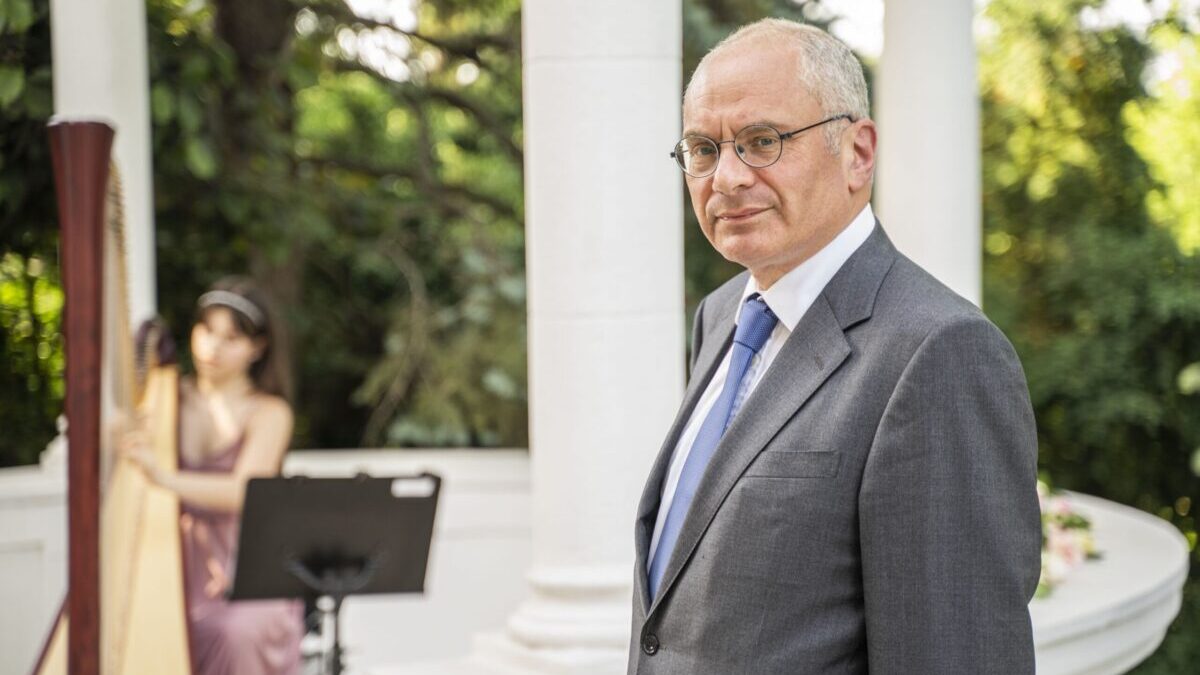As we point out to British companies, the regional opportunity in the Western Balkans and the wider area makes Serbia an even more attractive proposition as a regional hub.
Career of Dr David Landsman, chairman of the British-Serbian Chamber of Commerce, spans senior positions in government and business. His connection to Serbia dates to 1997 when he joined the British Embassy in Belgrade. We talked with him about economic ties between Serbia and UK, Western Balkans and UK’s cultural products.

The new economic reality has been created by the coronavirus-induced crisis, inflation, energy crisis and attempts at the implementation of the green agenda, all in light of the Ukraine war and pandemic. How has the UK been coping with all of this?
We are now seeing everywhere the cumulative effects of multiple challenges from the coronavirus pandemic to the conflict in Ukraine. No country is unaffected and in Britain we are experiencing an energy crisis and inflation which remind many people of the 1970s. But much has changed for the better since then. For example, the UK’s leading efforts in tackling climate change means that renewables and energy efficiency measures can play a significant role in blunting the effects of the crisis. Technology, where the UK is a leading player, helps reduce costs and support continued globalisation. Every crisis brings new opportunities and acts as a spur to innovation.
Will the new situation cut the economic ties or reinforce them, in sense of bigger trade volume and more FDIs?
We should never underestimate the benefits from globalisation, including to the poorest. Globalisation isn’t remotely finished, but it will change. Supply chains for goods will in some case be shortened. That will come at a price, but for essential supplies and components, we will recognise that “just in case” instead of “just in time” will be worth paying for. There will be more opportunities for midshoring and onshoring, which can benefit both Serbia and Britain. But in many areas of today’s life, technology can take the geography out of trade, and in these areas globalisation will continue to advance, bringing developments for innovative sectors in both Britain and Serbia.
What are the chances for boosting the UK-Serbia economic cooperation?
I have recently returned to the UK after the BSCC’s Trade Mission in Serbia. In the space of a week, we travelled across the country, visiting factories and vineyards, meeting Chambers of Commerce and business leaders from Vranje and Leskovac via Čačak and Kragujevac to Novi Sad and Belgrade. We met with many Chamber members, but equally exciting was to meet new companies who were also doing business between the two countries.
Our two countries are looking at each other with a fresh eye.
After all our meetings, I’d say that the prospects for British-Serbian economic relations have never been better. The situation in Europe and the world is changing and both countries – governments and businesses – are actively looking for new opportunities. Our two countries are looking at each other with a fresh eye. After our week on the road, we have a long list of opportunities to follow up. And I’m sure there are many more.
The British companies are traditionally more orientated towards the Commonwealth and the EU. Will the Western Balkans come into focus any time soon?
After Brexit, British companies have taken a pragmatic approach to making the best of the new opportunities and a new more global focus. We are seeing this in the number of enquiries we are receiving. The British Government, especially the Department for International Trade (DIT) and UK Export Finance (which has allocated £4bn for projects in Serbia), are actively supporting businesses to find the opportunities. As we point out to British companies, the regional opportunity in the Western Balkans and the wider area (which is benefitting from substantial infrastructure investment to improve rail, road and electronic communications) makes Serbia an even more attractive proposition as a regional hub.
The entertainment industry is one of the British trademarks and Serbia has been traditionally influenced by British culture. Can we expect more of the UK’s ‘cultural products’ because they are the true soft power?
I walked along the riverside by Belgrade Waterfront a few days ago and was delighted to see the Trotters’ (Only Fools and Horses) van parked there as part of the tourism fair! It’s true that British entertainment and culture, from the Beatles to the Premier League and from high culture to Del Boy, have the power to attract people to Britain and so to build lasting relationships. As a Chamber in Serbia, we benefit from “Brand Britain“. It’s great when our members can join in supporting cultural activities. Personally, I look forward to seeing more Serbian culture in the UK as well.